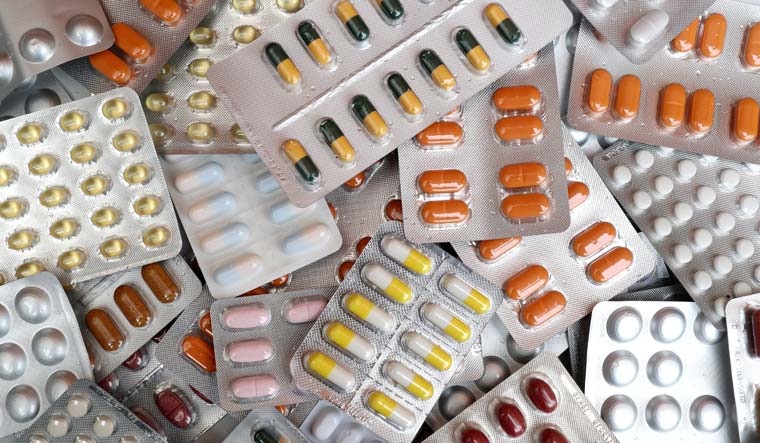Subpar and spurious medicines have always been a thorn in the flesh for the Indian pharma sector.
Indian pharma companies have been scrutinised by the US Trade Representative (USTR), which found that approximately 20 per cent of all drugs on sale in India are counterfeit. This is the kind of finding that can adversely affect India's budding pharma sector and reputation, even as it ranks third in the world in terms of the volume of drugs produced. India meets over 20 per cent of the global demand for generic drugs, which is no surprise considering the country has over 10,500 manufacturing units and 3,000 firms.
Despite the export achievements in the sector, India may fall behind in the race due to the sheer lack of quality products if the country fails to invest in quality control measures. In the wake of the recent allegations against Maiden Pharmaceuticals, which is under scrutiny after the WHO issued an alert saying the firm's cough syrups could potentially be linked to the death of children in the Gambia, the industry will have to take certain measures to regain its status in the world pharma rankings. These steps include encouraging innovation through increased spending in R&D, making marketing companies accountable for product quality, and implementing stringent quality controls.
Here is a look at a few steps that could be implemented to improve the quality of drugs produced in the country.
API quality check
As of now, quality checks are only done for final batches of medicines. In the future, the government should decide on parameters for active pharmaceutical ingredients (APIs) that are added to formulations as well. This is because a few companies are marketing APIs without studying their quality.
Using inferior quality materials inevitably results in poor quality medicines. Since it is tough to understand the quality of APIs used in the final formulations, there should be stringent mandates for lab testing parameters for key APIs. Besides, random quality checks of APIs manufactured and sold in the country should be normalised.
Introduction of barcode
The Drugs Technical Advisory Board (DTAB) has recommended that QR codes or barcodes be introduced for the top 300 brands of drug products available in the market. This is a great initiative and must be made a standard practice for all drugs produced in India. Such codes aid in tracking drugs throughout the pharma supply chain and ensure that they are authentic.
Barcode data must necessarily include a unique product identification code, the batch number, size, API and brand name, name and address of the manufacturer, date of manufacturing and expiry, serial shipping container code, manufacturing and import licence number.
Maintain quality control
In the post-Covid world, the focus is on the best quality standards, and drugs made in India must also align with these changing standards. The health ministry has made regulatory changes to make marketing companies responsible for quality as well. Earlier, only pharma manufacturers were liable for drug quality. Under the changed norms, no companies will now be able to blame contract manufacturers for poor quality products as marketing firms will also be liable for ensuring drug quality.
Setting up QC task force
Although strict quality checks are in the process of being mandated by the government, many factors leave much to be desired in the sector. There is an urgent need to establish a task force whose chief purpose will be to maintain the quality of manufactured drugs, under the aegis of Drugs Controller General of India (DCGI). The task force should conduct occasional raids on pharma manufacturing units to ensure production rules are not compromised and collect samples from manufacturing units.
Pharmaceutical Technology Upgradation Assistance Scheme (PTUAS)
The government has proposed support for SMEs under the PTUAS scheme, either through interest subsidies of up to 5 per cent per year (6 per cent in the case of units owned and managed by SC/STs) or a 10 per cent credit linked capital subsidy. In both cases, the loan is limited to a maximum of Rs 10 crore. A budget of Rs 300 crore has been set aside for the five-year scheme.
The PTUAS scheme, which has been proposed to assist SMEs, can also be used by pharmaceutical companies for upgrading manufacturing units and automating them. This will aid in maintaining finished drug quality standards.
These measures are just the beginning of an entirely new quality journey for the industry. When used properly, they will support the country in its fight against subpar and counterfeit drugs, helping India become the global pharma leader.
Arushi Jain is the director of Akums Drugs & Pharmaceuticals Ltd.
The opinions expressed in this article are those of the author's and do not purport to reflect the opinions or views of THE WEEK.




